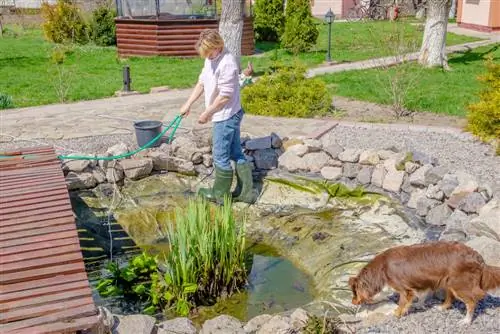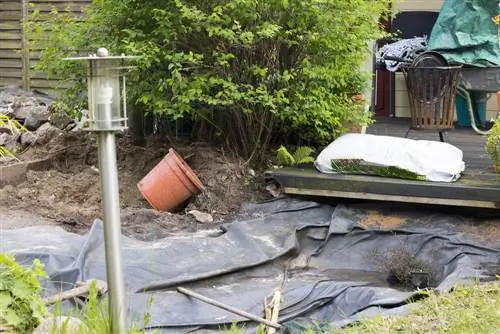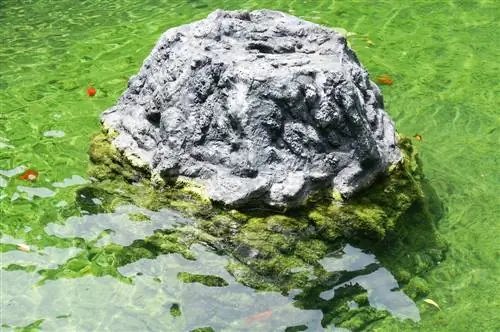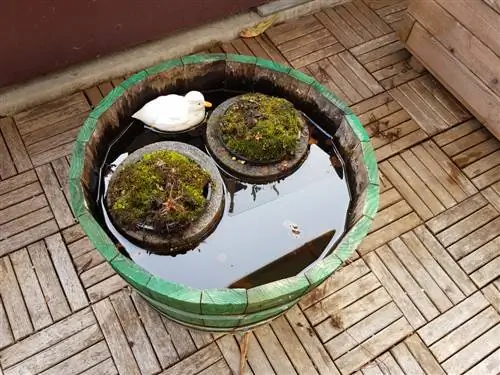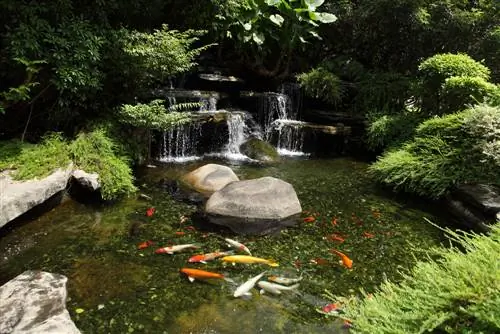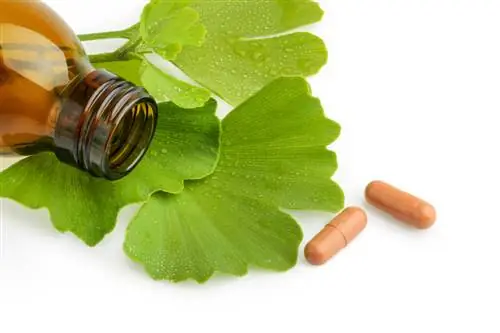- Author admin leonars@hobbygardeners.com.
- Public 2023-12-16 16:46.
- Last modified 2025-01-23 11:22.
Spring has finally come and the garden pond's ice preventer has probably already been removed. If you give the water some extra attention, it will pay off in the summer months with crystal clear water and he althy pond inhabitants.
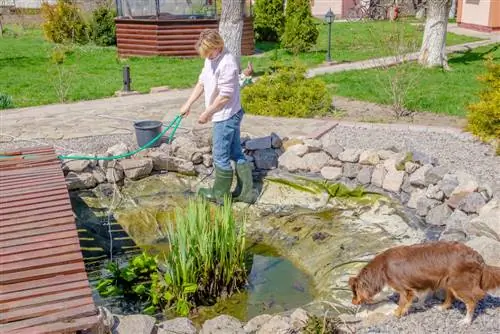
What is part of spring care in the garden pond?
Spring care for the garden pond includes cleaning, checking the technology, testing the water quality and refeeding the fish. With optimal care, you can enjoy he althy pond inhabitants and crystal-clear water in summer.
Rough cleaning
First visually check the pond liner or pool for damage. Sometimes these can also be recognized by water losses. Seal these if necessary. At the same time, remove dead plant parts, algae and dirt with a landing net.
Over the winter, biomass settled on the ground as a layer of mud. You can easily vacuum these out with a mud vacuum. For a thin layer, liquid mud removers (€54.00 on Amazon), which you can purchase from gardening stores, may be sufficient.
Check technology
To ensure that the pond inhabitants and plants thrive, almost no garden pond can do without a pump and filter. Therefore, check the functionality of the pond electrics now in spring:
- Clean devices thoroughly.
- Rinse filter sponges and change if necessary.
- UVC lamps only provide full performance for one season, replace them.
Testing water quality
As soon as the filter is put back into operation, you must ensure that there are sufficient filter bacteria in the sponges:
- Turn off the UVC lamp for a few days.
- Put the bacteria-enriched preparations directly onto the filter sponges. The microorganisms accumulate here within a very short time.
- Check the water quality. If the values do not correspond to the recommended ones, you can use targeted water care products. These bind the excess nutrients and inhibit algae growth.
Feeding aquatic creatures again
From a temperature of twelve degrees you can put fish that have been kept indoors back into the pond during the winter months. Now is the time to feed the animals again.
- Use a new food can, as a good supply of vitamins and nutrients is very important after the long starvation phase.
- Supplement the feed with a multivitamin once or twice a week.
The water temperature and water quality play a major role in the amount of food:
- If the water quality is poor, temporarily reduce the amount of food.
- If the water values are correct, feed about 1 percent of the fish's weight daily.
Tip
Organic waste from the garden pond makes an excellent fertilizer. Simply mix these into the soil of the flower bed and enrich the substrate with nitrogen. You can also enrich the compost with the pond waste.

